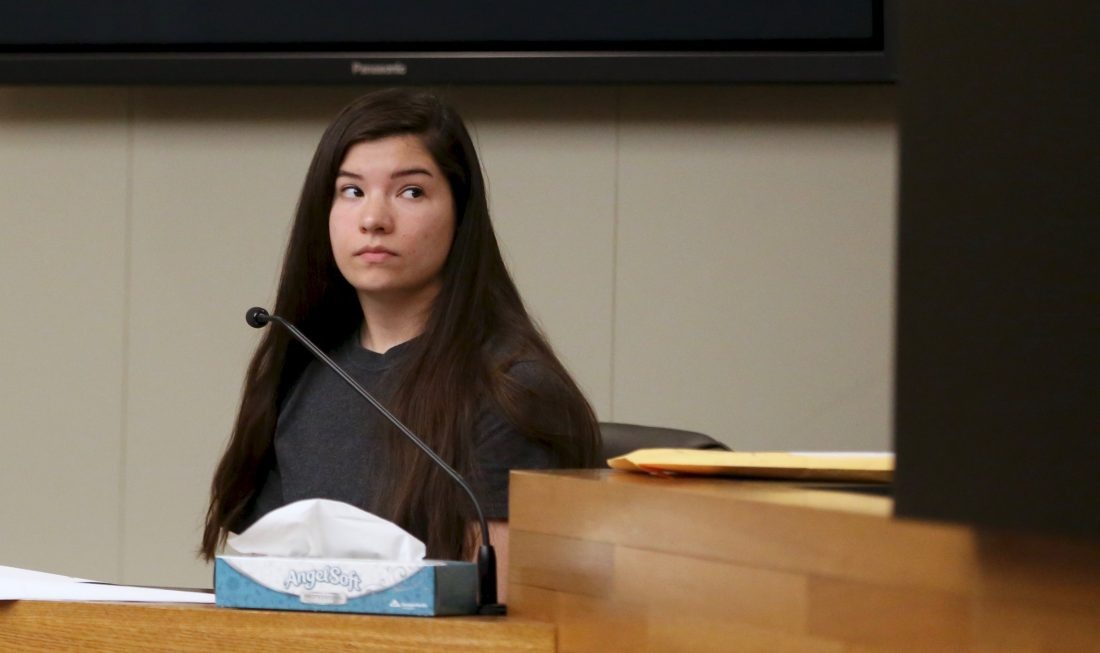Sarah Gonzales-McLinn, convicted in 2014 murder, testifies that she trusted attorney, didn't understand her rights
Originally published in the Lawrence Journal-World:

Part 1 | Part 2 | Part 3 | Part 4
A woman now serving a life sentence for murder testified on Thursday that her lawyer constantly reassured her that they would win her case; she didn’t understand the possible repercussions if they didn’t, nor did she understand her rights as a defendant.
A Douglas County District Court judge will soon decide if the woman’s sentence should be vacated and her conviction overturned.
Sarah Gonzales-McLinn, now 25, was sentenced in 2015 to the “hard 50” — 50 years in prison without the possibility of parole — for the Jan. 17, 2014, murder of 52-year-old Harold “Hal” Sasko. Sasko, 33 years her senior, was the owner of Cici’s Pizza in Lawrence.
An appeal to the Kansas Supreme Court was unsuccessful, but in a civil case represented by her new attorney, Jonathan Sternberg, Gonzales-McLinn is seeking to overturn the sentence.
At hearings in December, Sternberg presented evidence to show that Gonzales-McLinn was not properly informed of a plea deal that would have cut her sentence by half, and that her lawyer at trial was ineffective for not considering a “battered woman syndrome” defense.
Assistant District Attorney Kate Duncan Butler resumed cross-examination of Gonzales-McLinn on Thursday but did not touch on the second point. Instead, Butler continued to ask questions clarifying what the then-19-year-old understood about the plea offer she could have taken.
The state had offered to drop a theft charge and seek a “hard 25” sentence if she pleaded guilty to first-degree murder.

However, Gonzales-McLinn testified that Carl Cornwell, her attorney at trial, “just always reassured me” and said that they would win her case.
“That was his theme,” she said Thursday. “... I just think that back then I put my whole trust into him.”
Winning, she clarified in response to Butler’s question, would mean the jury finding her not guilty by reason of mental defect or deficiency and being sent to Larned State Hospital “until they said I could come out.”
So she’d turned the offer down. She had no prior criminal history and no knowledge of how court processes work, she said, and no way of knowing if her attorney was doing something wrong.
“Did I understand (the hard 50) was a real possibility? No,” Gonzales-McLinn testified.
She also said she didn’t understand that she could speak in court or address now-retired Judge Paula Martin if she wanted to.
“My understanding was (Cornwell) was speaking on my behalf,” she said. “I didn’t speak in court because that’s what he was for.”
In December, Cornwell testified that he was concerned about Gonzales-McLinn’s understanding of the plea offer and that he should have been more adamant with her — “That’s where I think I failed her,” he said.
• • •
Sternberg’s second claim for which Judge Amy Hanley agreed to hear evidence was that Cornwell should have sought a “battered woman syndrome” defense in Gonzales-McLinn’s case.
Gonzales-McLinn’s relationship with Sasko began with him as a sort of caretaker early in her teen years when he “took me under his wing,” she testified in December.
She moved into Sasko’s Lawrence apartment when she was 17, and the situation devolved into a nonconsensual sexual relationship in which she felt no control, according to her testimony. She went into detail, becoming emotional at times, about Sasko’s alleged emotional, sexual and financial abuse.
Butler did not cross-examine Gonzales-McLinn on any of that testimony.
Sternberg and Butler will submit written proposed findings and conclusions of law to Hanley by April 13, and she will make a ruling after considering the evidence she heard along with the two written arguments. She noted that the filings would be simultaneous rather than have one rebutting the other.
Sternberg said after the hearing that if Hanley rules in Gonzales-McLinn’s favor on either or both of the issues, Gonzales-McLinn’s conviction could be overturned and her sentence could be vacated. In that case, she would most likely have a new trial — however, the state could appeal Hanley’s ruling to the Kansas Court of Appeals before that could happen.
If Hanley does not rule in his client’s favor, Sternberg said he would appeal the decision.
